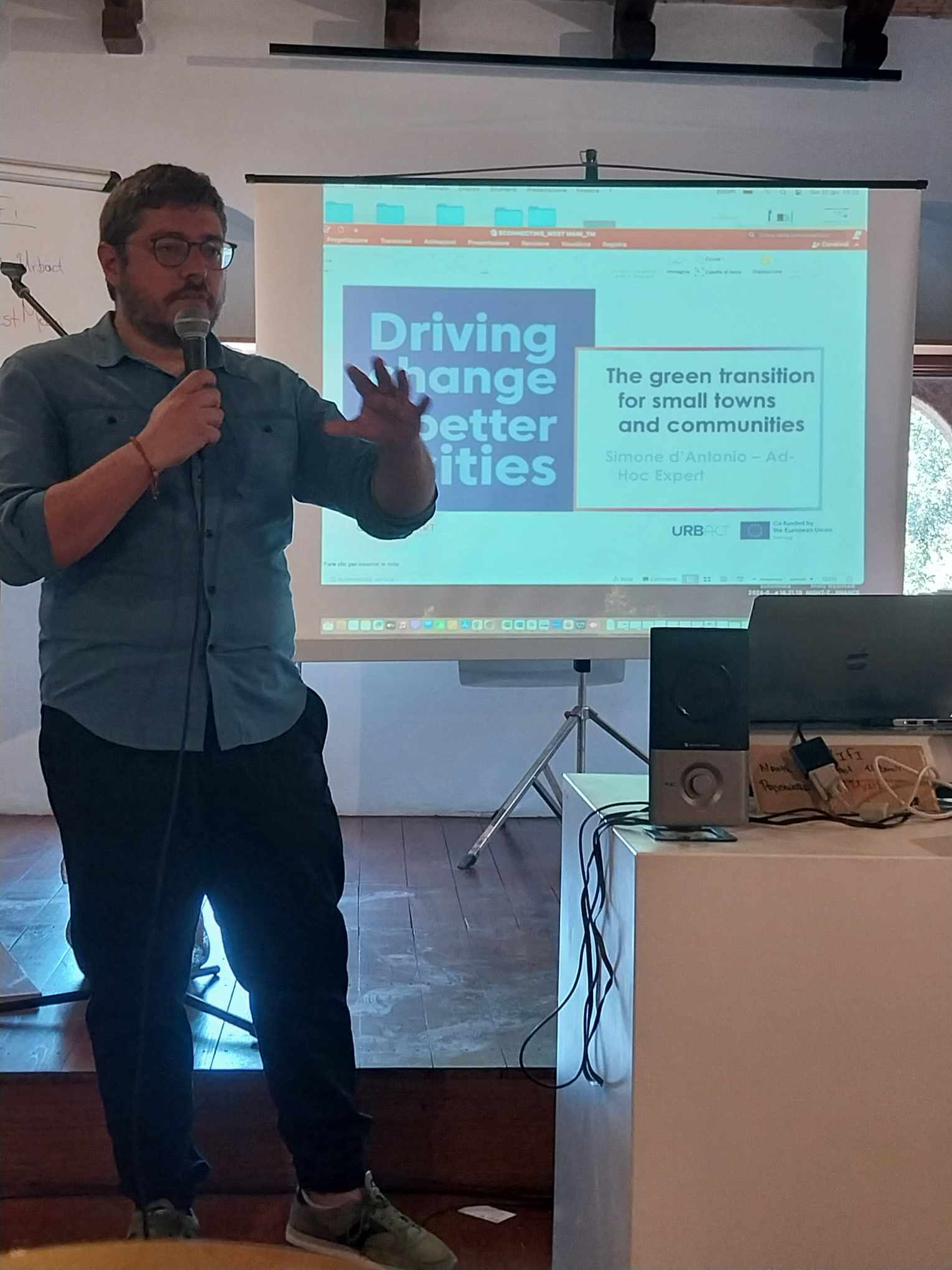Challenges in Rural Contexts
The green and digital transitions are particularly challenging in rural settlements surrounding urban centers. These areas often face inadequate public transport services, limited essential services, low-quality infrastructure, and consequently demographic decline. The ECONNECTING meeting in West Mani provided a platform to explore the conditions necessary for upgrading public services, infrastructure, and connectivity, thereby creating a favorable environment for attracting permanent residents and economic activities in rural areas.
West Mani’s response to local challenges
West Mani encompasses both urban-semi-urban towns and mountainous villages, totaling 64 villages. During the meeting, participants visited Kardamyli and two mountain villages, Kastania and Arahova. These remote villages, despite their challenging accessibility, hold significant value due to their historical and natural resources. Costas Karberis, a local expert, presented discussed ongoing projects aimed at upgrading public spaces in these villages. Expected benefits include improved accessibility and functionality of public infrastructure, enhanced quality of life for residents, and the attraction of new businesses and visitors through regenerated public spaces with new pavements, better lighting, and modern and smart urban equipment.
West Mani’s approach to addressing these challenges is encapsulated in the Integrated Territorial Programme, presented by Project Coordinator Anna Nickitopoulou. This framework includes various projects aimed at upgrading public spaces and promoting digital and green transitions. Four projects focus on the digital transition, modernizing tourism sector businesses, and enhancing the attractiveness of natural and cultural heritage sites. Five projects address green community goals, including wastewater and household waste management, improving accessibility, residential environment upgrades, and enhancing sports infrastructure.
Panagiotis Papantoniou, President of the Association of Greek Transport Engineers, provided valuable data on the green parameters of a traffic study in West Mani. This study, considering the region’s unique characteristics, identified significant parking issues and narrow streets that hinder pedestrian traffic. The development of an electric vehicle charging plan could encourage the use of electric vehicles and reduce traditional vehicle pollution, improving the area's quality of life. Infrastructure improvements, better public transport connections, and a comprehensive electric vehicle charging network are essential for the region's sustainable development.
Proximity and Sustainable Urban Transformation

According to ECONNECTING Lead Expert Roland Krebs, proximity is crucial in transforming urban spaces to meet diverse needs within a short distance, thereby reducing reliance on automobiles. This transformation involves integrating various modes of transport such as car-sharing, car-pooling, and bike rentals, with a strong emphasis on enhancing public transport and promoting active mobility. Proximity reimagines cities as self-sufficient entities where essential services are easily accessible, reducing the need for long trips and fostering environmentally conscious communities. Restricting car usage aligns with sustainability goals, contributing to eco-friendly and community-centric urban environments.

Smart Village Strategy: A Case Study
The URBACT Expert Simone D’Antonio highlighted how the green transition can positively impact small towns in rural areas by promoting sustainable housing regeneration and creating new economic opportunities. The Municipality of Ostana in Italy's Piemonte region exemplifies this approach. Ostana, one of Europe’s first “Smart Villages,” has countered population loss and geographical isolation with innovative and sustainable strategies. These include a multidisciplinary mobility strategy with carpooling systems, e-bike and e-car charging stations, and efforts to attract developers, creative professionals, and aspiring “city quitters” to contribute to the local community. Ostana’s objectives focus on creating a green community, increasing affordable housing with fast broadband, and fostering cultural and social innovation. This participatory approach, involving extensive resident and stakeholder engagement, has defined a clear vision for addressing urgent local challenges and new needs like remote working. Ostana is now recognized as a leading model of alpine regeneration.
Conclusion
The ECONNECTING Transnational Meeting in West Mani highlighted the complexities and potential solutions for achieving green and digital transitions in rural areas. By focusing on proximity, innovative strategies, and integrated approaches, regions like West Mani are paving the way for sustainable, closer, and connected communities. Next appointment: in September at our Slovenian partner Ormož!

